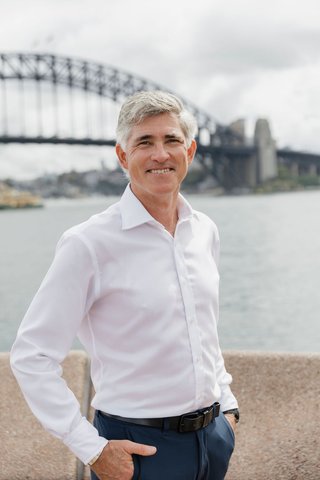Sev.en to ramp up SO4's Lake Way potash alone after failing to find ‘suitable' investor for Goldfields mine
The West Australian, Adrian Rauso, 14 February 2025 Link to the original article
A Czech billionaire has stopped trying to woo a white knight for the bruised and battered survivor of Australia's decimated potash industry. But there is still hope the Goldfields mine will finally yield commercial quantities of the fertiliser supplement soon.
Sev.en Global Investments, the family office of Czech coal tycoon Pavel Tykač, was on the hunt for someone to share the financial burden of developing the Lake Way sulphate of potash project near Wiluna. Selling it completely was also on the table for a $300 million-plus sum.
Sev.en's Australia country manager Mark Sykes told The West Australian in July he was hoping “to close out some level of transaction” for Lake Way by the start of this year.
But a deal never eventuated, Mr Sykes confirmed this week.
“We did go through a process and through that process the intent there was to try to find a strategic investor or a market player who'd be able to add additional value to what we were doing,” he said.
“We didn't really find anybody suitable that would add any more value than us, and so therefore the outcome was holding and retaining ownership of the business and having full control was probably in our best economic interest.
“So, we ceased that sales process and and then we've continued to invest and grow the business.”
Lake Way was scooped up for an undisclosed sum in October 2022 from the ashes of ASX-listed
Salt Lake Potash, which imploded under the weight of debts exceeding $160m.
The rebirthed business was named SO4 — Salt Lake's former ASX ticker code — and by July last year Sev.en had pumped in “more than $200m” to get the operation up and running.
Mr Sykes said the money poured into SO4 is now well into the hundreds of millions but believes Sev.en is on the precipice of starting to recoup some of its hefty investment.
“We expect this quarter to be in production and we'll do a gradual ramp up to our nameplate capacity of 200,000 tonnes of SOP per annum,” he said.
“We expect nameplate to be hit in 2026.”
Lake Way cranked out first SOP in July but has hit big potholes on the road towards commercial- scale production, notably persistent blockages in its processing plant and high staff turnover — sources close to the company say.
Mr Sykes said the processing plant problems were “no different to any commissioning teething issues . . . there's been no fatal flaws” and pinned the staff churn on a tight job market across WA's mining industry.
SO4 is the last remaining pure-play potash business of note in Australia after Agrimin on Monday flagged a retreat from its Lake Mackay project spread across the WA-NT border, citing the weak investment appetite for Australian-domiciled SOP projects.
Kalium Lakes and Australian Potash have been among the most notable SOP failures.
SOP is produced when briny water is drained from salt lakes into evaporation ponds. The evaporated material is then harvested and processed.
The scorching outback heat has made it difficult for miners in Australia to properly cool down the extracted minerals that get processed into saleable SOP.
Mr Sykes said SO4 has developed a “fundamentally different” processing plant that will enable the operation to succeed in the parched landscape.
SO4 has “just shy of 100” people on site and about 25 people in its Perth office, according to Mr Sykes, and is currently on a recruitment drive, “especially for plant operators”.


